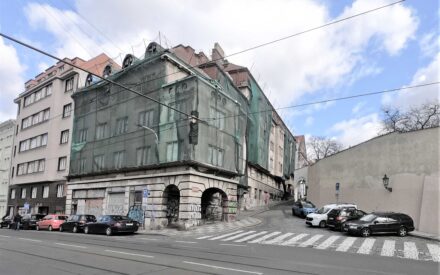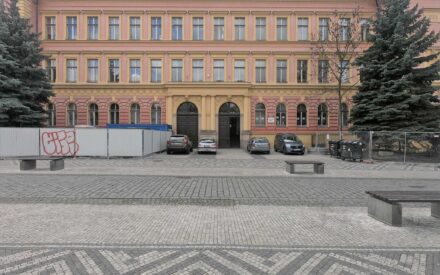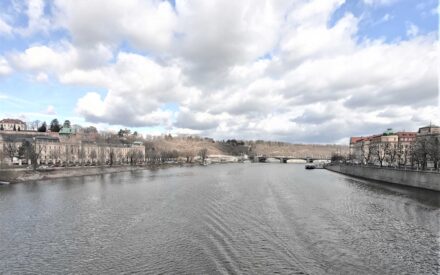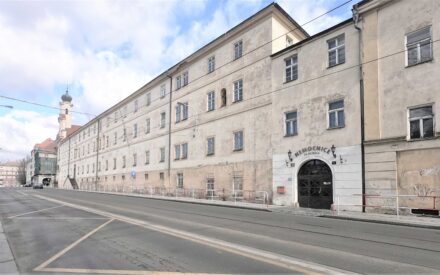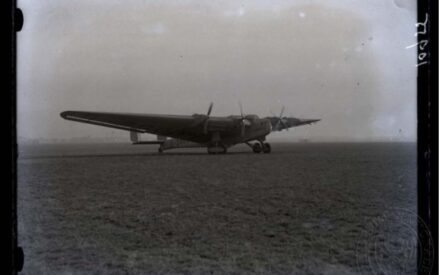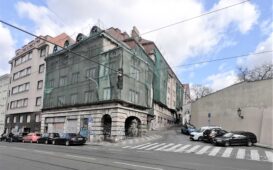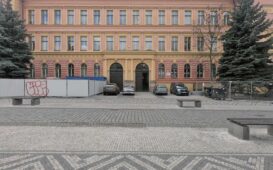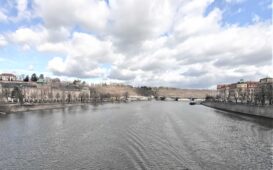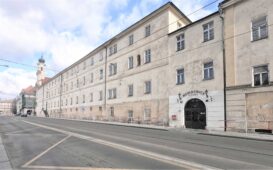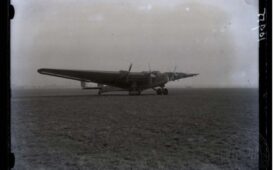Robert Popper
The story of a four-month escape through Prague
When Hitler became Reich Chancellor of Germany in 1933, it was quite clear that fascist tendencies in German society would grow stronger. Five years later, in March 1938, Hitler occupied Austria, and the Poppers, who lived in Vienna, began desperately trying to find a way to escape the country. Not to another European country, but as far away from Europe as possible. They chose Australia. Naturally, they ran into all sorts of obstacles. To get a visa, Fred Popper had to have money. To get the money, he had to go to Tanvald, to his former employer, where he could collect it. At that time, it was only possible to get from Austria to Tanvald illegally, with the help of smugglers. They were supposed to transport the Poppers from Vienna to nearby Brno. It was the beginning of September 1938. Under unclear circumstances, the family eventually found themselves in Hungary. They failed to cross the border into Czechoslovakia, but they were lucky. They were not sent back to Austria, but local people helped them to leave for Budapest. After a week's stay they managed to leave legally by train to Brno. Everything seemed to be going according to plan. Robert's father left for Tanvald and returned with money. But the plans were affected by 29 September and the signing of the Munich Agreement. The agreement put the lives of the Jewish refugees in even greater danger. The Popper parents decided that Brno was no longer a safe place and moved to Prague in early October 1938.
They rented a nice little one-bedroom apartment at 8 Na Slupi Street near Charles Square. At that time it was a new, modern house built in 1932. About twenty to thirty German-speaking refugee families lived there. Robert was eight years old at the time. He vividly remembers that his parents slept on the only bed, his "bed" was under the kitchen table. He would do boy things with the two boys in the house, walking the streets with his mother and looking in the windows of toy stores. It was a bitter winter that year and a lot of snow fell. Robert, who was a very good skater, was allowed to walk on the frozen Vltava River. From where he skated, he could even see the Charles Bridge up close.
The school he went to had classes in German and was close to their apartment because he walked to it. In his six weeks of schooling in Prague, Robert had not made friends with any of his classmates, and no wonder. But he liked arithmetic and drawing at school. He was proud to be able to draw the Czechoslovak flag.
During his stay in Prague, Robert's mother fell ill. She had to stay in the hospital. It was undoubtedly St. Elizabeth's Hospital in the same street where they lived. The Catholic nuns who worked there as nurses were very nice to her. Fortunately, my mother only stayed in the hospital for a few days, her trouble was nothing serious.
The Kristallnacht programme was another alarming impulse for the Poppers to emigrate from Czechoslovakia. However, due to the ever-changing political situation, travel to Australia was not possible. Instead, they decided to go temporarily to England, which agreed to accept the refugees. It was absolutely unthinkable to go to England by train via Germany. The only possible way out of the country was by plane. As it was snowing heavily, the plane was not allowed to take off. Fortunately, the weather cleared up on the second attempt. The KLM plane was allowed to leave for Amsterdam. Amsterdam was only a stopover on Robert and his parents' journey to England. The four-month escape was over.
See also
SoPaDe
German Social Democracy in Exile in Czechoslovakia.
Paths of Prague’s German-Language Writers
The topic introduces five German-writing authors, both men and women, who described Prague’s streets, secluded places and inhabitants.
A literary walk through Kafka’s Prague on the trail of his story Description of a Struggle
Procházka sleduje cestu, která je vylíčena v Kafkově dílku z let 1904–1910 Popis jednoho zápasu.
